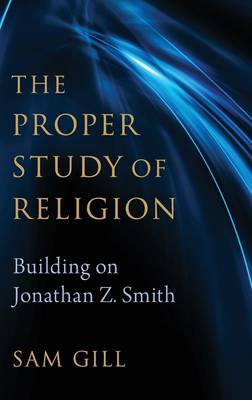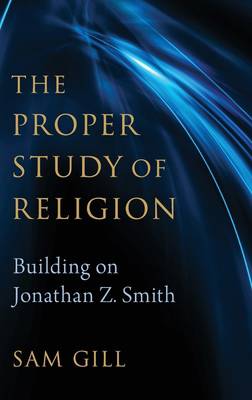
En raison d'une grêve chez bpost, votre commande pourrait être retardée. Vous avez besoin d’un livre rapidement ? Nos magasins vous accueillent à bras ouverts !
- Retrait gratuit dans votre magasin Club
- 7.000.000 titres dans notre catalogue
- Payer en toute sécurité
- Toujours un magasin près de chez vous
En raison de la grêve chez bpost, votre commande pourrait être retardée. Vous avez besoin d’un livre rapidement ? Nos magasins vous accueillent à bras ouverts !
- Retrait gratuit dans votre magasin Club
- 7.000.0000 titres dans notre catalogue
- Payer en toute sécurité
- Toujours un magasin près de chez vous
217,95 €
+ 435 points
Description
The first generation of the proper academic study of religion might be said to span the half century from 1963 to 2013. Supreme Court Justice Clark's 1963 opinion clarifying that any liberal "education is not complete without a study of comparative religion or the history of religion and its relationship to the advancement of civilization" allowed the legal teaching of religion in secular universities. The end of the first generation might be marked by the 2013 retirement of Professor Jonathan Z. Smith (1938-2017) from the University of Chicago where he had taught since 1968. Arguably no scholar has made a greater contribution than did Smith to establishing a proper academic study of religion.
In The Proper Study of Religion, Sam Gill charts an innovative course of development for the academic study of religion by creatively engaging the legacy of Jonathan Z. Smith, Gill's teacher and mentor for fifty years. Their careers coincided with the explosive expansion of the study of religion in secular universities in the US that began in the mid-1960s. Using an engaging narrative style, Gill builds on Smith's work exploring an extensive range of absorbing and foundational topics including: comparison as essential to academic technique and to human knowledge itself; the important role of experience, richly understood, both to academic studies of religion and to religions as lived; play, philosophically understood, as a core dynamic of Smith's entire program; the relationship of academic document-based studies to the sensory-rich real world of religions; and self-moving as providing a biological and philosophical foundation on which to develop and expand upon a proper academic study of religion. The foregrounding of human self-movement, new to the study of religion, is informed by Gill's experience as a dancer and student of dancing in cultures around the world. This book honors the work of an unforgettable giant of a man while also offering critical assessments and innovative ideas in the effort to advance the remarkable legacy of Jonathan Z. Smith.
In The Proper Study of Religion, Sam Gill charts an innovative course of development for the academic study of religion by creatively engaging the legacy of Jonathan Z. Smith, Gill's teacher and mentor for fifty years. Their careers coincided with the explosive expansion of the study of religion in secular universities in the US that began in the mid-1960s. Using an engaging narrative style, Gill builds on Smith's work exploring an extensive range of absorbing and foundational topics including: comparison as essential to academic technique and to human knowledge itself; the important role of experience, richly understood, both to academic studies of religion and to religions as lived; play, philosophically understood, as a core dynamic of Smith's entire program; the relationship of academic document-based studies to the sensory-rich real world of religions; and self-moving as providing a biological and philosophical foundation on which to develop and expand upon a proper academic study of religion. The foregrounding of human self-movement, new to the study of religion, is informed by Gill's experience as a dancer and student of dancing in cultures around the world. This book honors the work of an unforgettable giant of a man while also offering critical assessments and innovative ideas in the effort to advance the remarkable legacy of Jonathan Z. Smith.
Spécifications
Parties prenantes
- Auteur(s) :
- Editeur:
Contenu
- Nombre de pages :
- 282
- Langue:
- Anglais
Caractéristiques
- EAN:
- 9780197527221
- Date de parution :
- 01-09-20
- Format:
- Livre relié
- Format numérique:
- Genaaid
- Dimensions :
- 163 mm x 236 mm
- Poids :
- 544 g

Les avis
Nous publions uniquement les avis qui respectent les conditions requises. Consultez nos conditions pour les avis.






